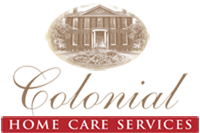It can be a bit trickier for elderly adults to get adequate nutrition. Since the majority of seniors tend to be less active than younger people, they require fewer calories. However, research indicates that aging adults might need more of certain key nutrients, like B vitamins and calcium.
Unfortunately, malnutrition and nutrient deficiencies can be present and worsening a long time before they appear as physical signs or symptoms. Still, there are indicators that you and your doctor can watch for and detect inadequacies in your elderly loved one’s nutrition as a result. Here are seven of those indicators.
1. Unexplained Fatigue
Aging adults typically get fatigued much easier than they once did, but excessive and unexplained fatigue is a definite warning sign. It’s often a manifestation of iron deficiency and is indicated by abnormally low levels of red blood cells. Your loved one may also appear pale to you. In addition, other health conditions can cause excessive fatigue, including thyroid disease, depression, and heart disease.
2. Brittle and Dry Hair
Hair is made up mostly of protein and serves as a helpful marker for diagnosing nutritional deficiencies. Brittle hair can signify a deficiency of essential fatty acids, iron, protein, and other nutrients. Some hair loss is to be expected as we age, but if hair begins to fall out at a rate that alarms you, inadequate nutrition could be the cause. Consult your loved one’s doctor; they can recommend nutrient-rich foods and supplements.
3. Rigid or Spoon-Shaped Nails
Similar to hair, nails also serve as an early warning signal of an inadequate diet. For example, a nail that curves up from the nail bed and appears to be similar in shape to a spoon may be an indicator of iron deficiency anemia. To counter this, their doctor may recommend iron pills and iron-rich foods like liver, and shellfish – such as oysters, clams, and mussels.
4. Mouth Problems
If you notice inflammation or cracking at the corners of the mouth, you may be looking at a warning sign of either an iron or B2 (riboflavin) deficiency. Also, a swollen and unusually pale tongue is often a sign of an iron or B-vitamin deficiency. These can both be treated with nutrient-rich foods and supplements.
5. Diarrhea
Chronic diarrhea can signal “malabsorption,” meaning your loved one’s body is not absorbing nutrients. This can be triggered by infection, certain drugs, surgery, heavy alcohol use, and certain digestive disorders such as Crohn’s disease.
6. Apathy or Irritability
Unexplained mood changes, especially having a feeling of apathy or irritability, may indicate depression or symptoms that their body isn’t being filled with the energy it needs. If your loved one is experiencing persistent low moods or increased forgetfulness, have them checked by their doctor as soon as possible.
7. Lack of Appetite
Like hair loss, aging can often be associated with a diminished appetite. Seniors are less active and require fewer calories, and medications can also dampen their appetite. Have their doctor diagnose the cause, since chronic lack or loss of appetite is a serious warning sign that they may be at risk of having nutritional deficiencies.
Blood tests can serve as an indicator of your loved one being deficient in some essential nutrients. Their doctor or a registered dietician can advise you on the best course of action.
Let Us Help With Your Elderly Loved One’s Nutrition
Meal planning and preparation is one of the services Colonial Home Care Services provides. Our trained caregivers understand the importance of a healthy diet for seniors. They prepare nutritious, delicious meals that satisfy your loved one’s dietary needs and personal preferences.
We’ve served seniors living in Orange County, Long Beach, Mission Viejo, and the surrounding area for over twenty-five years. Contact us today and schedule your free in-home consultation. In addition to meal prep, you’ll be pleasantly surprised with all the services we offer to help your loved one remain safe and healthy at home.

